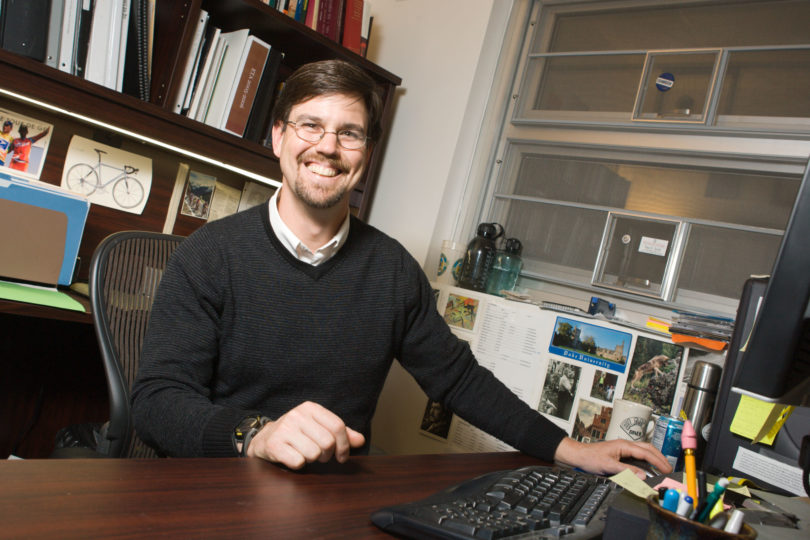The meeting opened with good news: geography graduate student John Frye had just accepted a position at a university, and his fellow members of the Future Faculty Program applauded.
Frye then revealed that he asked for a bigger salary-and received it. The group applauded again. Then came the turn-around.
Paul Quick, who co-directs the program with Katherine Smith, asked a question: “If they weren’t able to give him the salary he wanted, what else might he have been able to ask for?”
This is not a standard question pointed at graduate students, but it could be essential to their careers. It thus concerns the Future Faculty Program (formerly the TA Mentor Program), which is run out of the Center for Teaching and Learning and co-sponsored by the Graduate School.
The Future Faculty Program is open to graduate students who receive the Outstanding Teaching Award, a university-wide honor given to teaching assistants across campus. The program sponsors 15 graduate students per year and educates them on the ins and outs of teaching and becoming faculty, a process that’s often overlooked at the graduate level, Quick said.
“The year is divided into two semesters,” he said. “During the fall, we focus on pedagogical development, and during the spring we focus on the process of becoming future faculty.”
Once these students learn how to incorporate new and innovative teaching methods, they’re encouraged to share their knowledge with their home departments by becoming peer mentors, he said.
The second semester, which focuses on the job market and the realities of faculty life, can also be eye opening, Quick said.
“Generally, graduate school does a great job of training future faculty to be good researchers, but graduate students don’t always get an idea of what a faculty job entails-it’s more than just publishing articles,” he said.
But the program doesn’t stop at the year’s end. The FFP alumni become part of an e-mail listserv of “former program participants, which is used as a resource for advice and guidance,” Quick said.
Michael Bitzer, professor of history and political science and dean of admissions at Catawba College in Salisbury, N.C., a 2001 graduate of the program, credits his career path and teaching aptitude to the experience.
“Because of the very nature of the TA Mentor Program as an interdisciplinary program, I got perspectives and heard about different teaching methods from a wide variety of disciplines. That’s something that I wouldn’t have gotten in a pure political science venue,” he said. “The biggest lesson, I think was to come at conveying knowledge from a wide variety of venues. Most of us are taught through the lecture style of teaching, but the program emphasizes using a variety of tools to pique students’ interests.”
The program began under the guidance of Katherine Smith, who soon is retiring from her role as co-director.
“My goal for the first few years is to basically not mess up any of the things she started. She’s done an incredible job developing this program from scratch. I owe her a lot,” said Quick, who will become sole director of the program this fall.
ON THE WEB
www.ctl.uga.edu/








